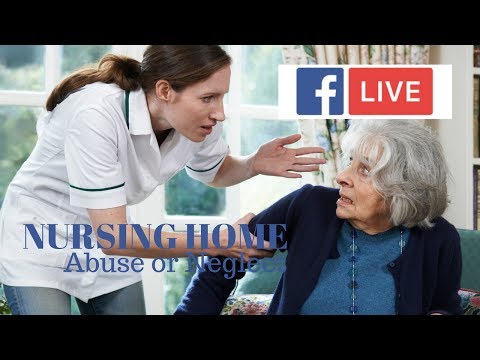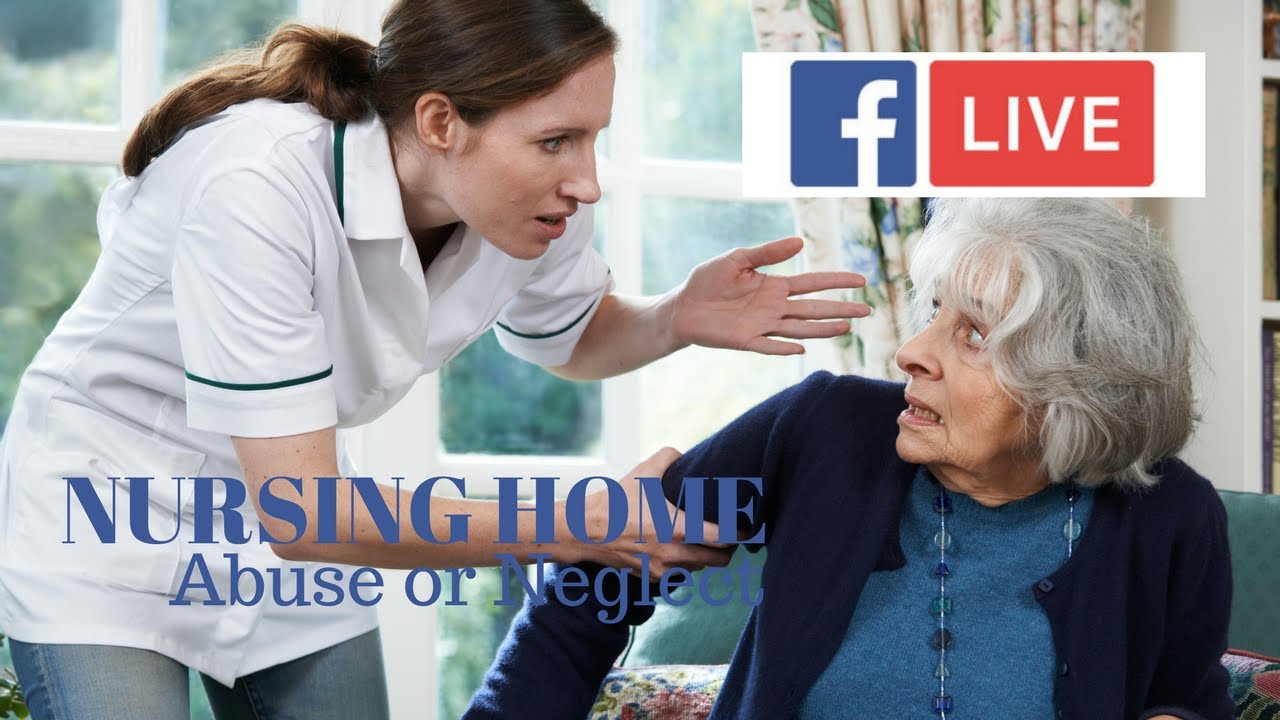Do you suspect nursing home neglect? Discover the crucial steps to take if you find yourself in this distressing situation. With the well-being of your loved ones at stake, it is essential to address any concerns promptly. This comprehensive guide provides you with essential information on how to recognize signs of neglect, ensuring you are equipped to protect your elderly family members. Abuse in nursing homes can manifest in various forms, such as physical, emotional, or financial mistreatment. By acting swiftly and decisively, you can prevent further harm and secure the safety and dignity of those you care about. Our expert advice empowers you to navigate the complex process of reporting suspected neglect, advocating for your loved ones, and seeking the justice they deserve. Together, we can shed light on this deeply concerning issue and work towards a society where every elderly resident in nursing homes receives the respect, care, and attention they deserve. Don’t let suspicion remain unanswered – take action today to protect the well-being of your loved ones.

What to Do If You Suspect Nursing Home Neglect
| Symptoms | Actions |
|---|---|
| Unexplained injuries such as bruises, cuts, or fractures | Contact the nursing home administrator and request an incident report. Document the injuries with photographs and seek medical attention for your loved one. |
| Significant weight loss or malnutrition | Speak with the facility’s nutritionist or dietary staff to address the issue. Request a detailed meal plan and monitor your loved one’s food intake. If necessary, consult a physician or consider transferring to a different facility. |
| Poor hygiene and unsanitary living conditions | Report the concerns to the nursing home administration and request immediate improvements. Document the conditions with photographs and consider involving relevant regulatory authorities such as the Department of Health or Adult Protective Services if necessary. |
| Emotional or psychological changes, withdrawal, or unresponsiveness | Engage in open communication with your loved one, nursing home staff, and the facility’s social worker. If problems persist, consult a geriatric psychologist or therapist for a professional evaluation and consider exploring alternative care options. |
| Medication errors or irregularities | Speak with the nursing home’s pharmacist or medical director to address concerns regarding medication administration. Document any discrepancies and consult your loved one’s physician for a review of their medication regimen. |
| Isolation or lack of social interaction | Encourage participation in social activities and visit your loved one frequently to provide companionship. Communicate with the facility’s activities director to ensure your loved one’s social needs are being met. |
| Unexplained financial transactions or missing personal belongings | Report suspicions of financial abuse to the nursing home administration and involve local law enforcement if necessary. Maintain a detailed inventory of your loved one’s belongings and consider utilizing secure storage for valuable items. |
Unveiling the Truth: What to Do If Nursing Home Abuse or Neglect is Suspected
What to Do If You Suspect Nursing Home Neglect
When you make the difficult decision to place a loved one in a nursing home, you expect them to receive the care and attention they need. Unfortunately, nursing home neglect is a growing concern. If you suspect that your loved one is a victim, it is crucial to take immediate action. Here are five steps to follow if you suspect nursing home neglect:
Educate Yourself on the Signs of Nursing Home Neglect
Before jumping to conclusions, it is important to understand the signs of nursing home neglect. Some common signs include:
1. Physical signs: Unexplained bruises, cuts, or injuries, poor personal hygiene, significant weight loss, and bedsores.
2. Emotional signs: Unusual withdrawal, sudden changes in behavior, depression, anxiety, or fear.
3. Environmental signs: Unsanitary living conditions, lack of clean bedding or clothing, and safety hazards.
4. Medical signs: Improper administration of medication, lack of necessary medical care, or untreated medical conditions.
5. Social signs: Isolation, lack of social interaction, or complaints from other residents.
If you notice any of these signs, it is essential to investigate further.
Document Any Suspected Neglect
If you suspect nursing home neglect, the next step is to document any evidence you have. This documentation can be crucial in building a case against the nursing home. Some important steps to take include:
1. Take pictures: Document any visible injuries or unsanitary living conditions with photographs. Make sure to date and label each photo.
2. Write everything down: Keep a detailed log of any incidents, including dates, times, and descriptions of what you observed or were told.
3. Gather medical records: Request copies of your loved one’s medical records, including any diagnosis, treatments, or medications provided by the nursing home.
By documenting everything, you will have a strong foundation to support your claim.
Report the Suspected Neglect
Once you have gathered evidence, it is crucial to report the suspected neglect to the appropriate authorities. Depending on the severity of the situation, you may need to take multiple steps:
1. Inform the nursing home: Start by reporting your concerns to the nursing home administration. They may not be aware of the situation and can take immediate action to address it.
2. Contact Adult Protective Services: If the nursing home fails to take appropriate action or you suspect abuse, contact your local Adult Protective Services agency. They are responsible for investigating reports of elder abuse and neglect.
3. Notify the state licensing agency: Research the licensing agency responsible for overseeing nursing homes in your state and file a complaint. This will trigger an investigation into the facility’s practices.
By reporting the suspected neglect, you not only protect your loved one but also help prevent future harm to other residents.
Seek Legal Assistance
If you believe your loved one has suffered from nursing home neglect, it is crucial to seek legal assistance. A skilled attorney specializing in elder abuse and neglect can guide you through the legal process and help you pursue justice. Some essential steps to take include:
1. Consult with an attorney: Schedule a consultation with an attorney experienced in nursing home neglect cases. They can evaluate your situation and advise you on the best course of action.
2. File a lawsuit: If warranted, your attorney can help you file a lawsuit against the nursing home. This legal action can hold the facility accountable for their negligence and seek compensation for any damages suffered.
3. Cooperate with the investigation: Work closely with your attorney and any investigating authorities to provide them with the necessary evidence and information.
Remember, seeking legal assistance can help ensure your loved one’s rights are protected and that those responsible for neglect are held accountable.
Consider Alternative Care Options
If you discover nursing home neglect, it may be necessary to explore alternative care options for your loved one. Their safety and well-being should always be the top priority. Some alternatives to consider include:
1. In-home care: Hiring a caregiver to provide assistance in the comfort of your loved one’s own home.
2. Assisted living: Transitioning your loved one to an assisted living facility that provides a higher level of care and supervision.
3. Another nursing home: Research different nursing homes in your area and carefully evaluate their reputation, staff-to-resident ratio, and quality of care.
Ultimately, the goal is to find a safe and nurturing environment where your loved one can thrive.
In conclusion, if you suspect nursing home neglect, it is crucial to take immediate action. Educate yourself on the signs of neglect, document any evidence, report the suspected neglect to the appropriate authorities, seek legal assistance, and consider alternative care options. By following these steps, you can protect your loved one and help prevent further instances of nursing home neglect.

